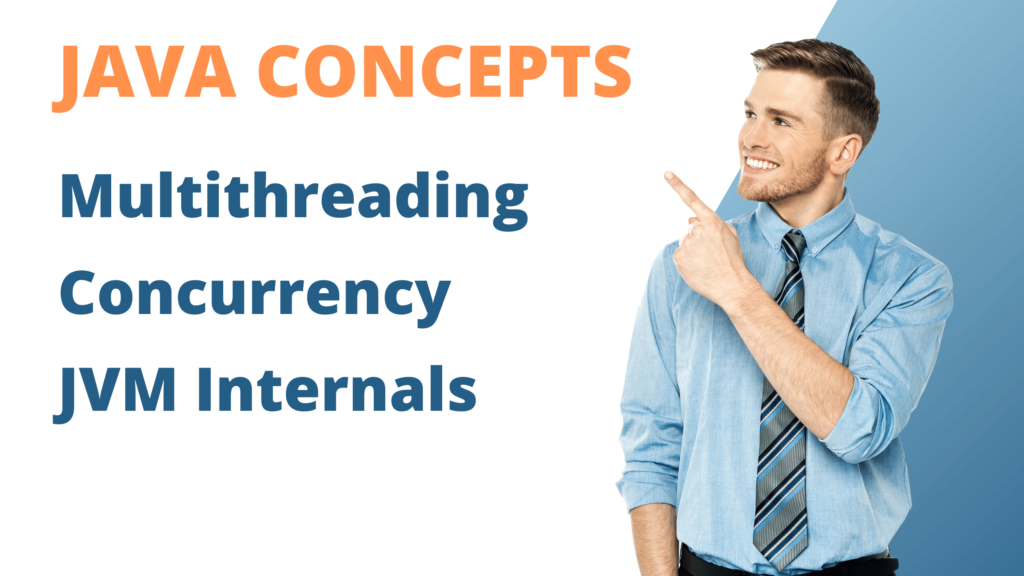Java, a popular programming language, has evolved over the years and now boasts many powerful features, libraries, and tools. Despite this, some aspects remain overlooked or underutilized. In this comprehensive guide, we will delve into Java’s lesser-known gems, providing insights into unique features, useful libraries, and powerful tools that can significantly improve your Java development experience.
Lesser-Known Java Features
Sealed Classes (Java 17)
Sealed classes, introduced in Java 17, restrict the set of subclasses that can inherit from a base class. By defining the permitted subclasses explicitly, you can create more secure and maintainable code. Sealed classes are valuable when working with domain models or implementing algebraic data types.
Example:
sealed abstract class Shape permits Circle, Rectangle {}
final class Circle extends Shape {
private final double radius;
Circle(double radius) { this.radius = radius; }
}
final class Rectangle extends Shape {
private final double length, width;
Rectangle(double length, double width) {
this.length = length;
this.width = width;
}
}Pattern Matching for Switch (Java 17)
Java 17 introduces pattern matching for the switch statement, offering a more concise and expressive syntax for complex conditional statements. This feature simplifies code, reduces verbosity, and enhances readability.
Example:
public String dayOfWeek(int day) {
return switch (day) {
case 1 -> "Monday";
case 2 -> "Tuesday";
case 3 -> "Wednesday";
case 4 -> "Thursday";
case 5 -> "Friday";
case 6 -> "Saturday";
case 7 -> "Sunday";
default -> "Invalid day";
};
}Text Blocks (Java 15)
Text blocks, introduced in Java 15, allow you to represent multiline strings easily and efficiently. This feature is especially beneficial when working with SQL queries, JSON, or XML.
Example:
String json = """
{
"name": "John Doe",
"age": 30,
"city": "New York"
}""";Records (Java 16)
Records, introduced in Java 16, are a concise way to declare simple classes that only serve as data carriers. Records automatically generate default constructors, getters, hashCode, equals, and toString methods, reducing boilerplate code and enhancing readability.
Example:
record Point(int x, int y) {}Local Variable Type Inference (Java 10)
Local variable type inference, introduced in Java 10, allows you to use the var keyword to infer the type of a local variable based on its initializer expression. This feature reduces verbosity and improves code readability.
Example:
var list = new ArrayList<String>(); // Inferred type: ArrayList<String>Useful Java Libraries
JUnit 5
JUnit 5 is a powerful testing framework that simplifies writing and running tests for Java applications. With its modular architecture, extensive assertions, and support for various test engines, JUnit 5 has become the de-facto standard for testing Java applications.
Example:
import org.junit.jupiter.api.Test;
import static org.junit.jupiter.api.Assertions.*;
class CalculatorTest {
@Test
void addition() {
Calculator calculator = new Calculator();
int result = calculator.add(2, 3);
assertEquals(5, result);
}
}Project Lombok
Project Lombok is a library that reduces boilerplate code in Java, making your code more readable and maintainable. It provides annotations for automatically generating constructors, getters, setters, and other standard methods.
Example:
import lombok.Getter;
import lombok.Setter;
@Getter
@Setter
public class Person {
private String name;
private int age;
}Jodd
Jodd is a lightweight, feature-rich set of libraries that simplify various aspects of Java development, including HTTP, JSON, database access, and utilities. With its straightforward API and minimal dependencies, Jodd is an excellent choice for modern Java projects.
Example:
import jodd.json.JsonParser;
import jodd.json.JsonSerializer;
class JsonExample {
public static void main(String[] args) {
// Serialize Java object to JSON string
Person person = new Person("Alice", 28);
JsonSerializer jsonSerializer = new JsonSerializer();
String jsonString = jsonSerializer.serialize(person);
System.out.println(jsonString); // {"name":"Alice","age":28}
// Deserialize JSON string to Java object
JsonParser jsonParser = new JsonParser();
Person deserializedPerson = jsonParser.parse(jsonString, Person.class);
System.out.println(deserializedPerson.getName()); // Alice
System.out.println(deserializedPerson.getAge()); // 28
}
}Vavr
Vavr is a functional library for Java that provides persistent data structures, functional control structures, and a rich set of functional utilities. Vavr helps you write more expressive, safer, and less error-prone code by embracing functional programming principles.
Example:
import io.vavr.control.Try;
public class VavrExample {
public static void main(String[] args) {
Try<Integer> result = Try.of(() -> divide(4, 2));
result.onSuccess(System.out::println); // 2
result.onFailure(ex -> System.out.println("Error: " + ex.getMessage()));
}
private static int divide(int a, int b) {
return a / b;
}
}Powerful Java Development Tools
VisualVM
VisualVM is a versatile, open-source tool for profiling and monitoring Java applications. It provides crucial information about application performance, memory usage, CPU consumption, and threads. VisualVM can help identify bottlenecks, memory leaks, and performance issues in your Java applications.
IntelliJ IDEA
IntelliJ IDEA is a popular integrated development environment (IDE) that offers a robust suite of tools for Java development. With its intelligent code editor, built-in tools for debugging, testing, version control, and powerful plugins, IntelliJ IDEA streamlines the development process and enhances productivity.
Apache Maven
Apache Maven is a build automation and dependency management tool for Java projects. With its convention-over-configuration approach, Maven simplifies project setup and allows you to manage dependencies easily. It also supports plugins for various tasks such as testing, generating documentation, and packaging.
Example:
<project>
<modelVersion>4.0.0</modelVersion>
<groupId>com.example</groupId>
<artifactId>my-java-project</artifactId>
<version>1.0</version>
<dependencies>
<dependency>
<groupId>org.junit.jupiter</groupId>
<artifactId>junit-jupiter</artifactId>
<version>5.8.0</version>
<scope>test</scope>
</dependency>
</dependencies>
</project>Advanced Language Features
Lambda Expressions (Java 8)
Lambda expressions allow you to represent instances of single-method interfaces (functional interfaces) using a more concise and expressive syntax. This feature enables you to write more elegant and functional code.
Example:
List<String> names = Arrays.asList("Alice", "Bob", "Charlie");
Collections.sort(names, (a, b) -> a.compareTo(b));Streams API (Java 8)
The Streams API provides a functional approach to processing collections, allowing you to perform operations such as filtering, mapping, and reduction in a declarative and parallelizable manner.
Example:
List<Integer> numbers = Arrays.asList(1, 2, 3, 4, 5);
List<Integer> evenNumbers = numbers.stream()
.filter(n -> n % 2 == 0)
.collect(Collectors.toList());Optional Class (Java 8)
The Optional class is a container object that can hold either a value of a given type or no value at all (null). It is used to express the concept of computation that might fail, eliminating the need for null checks and reducing the risk of NullPointerExceptions.
Example:
public Optional<String> findNameById(int id) {
// Fetch name from a data source using the provided id
// If not found, return Optional.empty()
// If found, return Optional.of(name)
}
Optional<String> nameOpt = findNameById(42);
if (nameOpt.isPresent()) {
System.out.println("Name: " + nameOpt.get());
} else {
System.out.println("Name not found");
}Lesser-Known Java Development Frameworks
Micronaut
Micronaut is a modern, lightweight framework for building microservices and serverless applications in Java. It is designed for high performance and minimal memory footprint, making it an excellent choice for cloud-native applications.
Example:
import io.micronaut.http.annotation.Controller;
import io.micronaut.http.annotation.Get;
@Controller("/hello")
public class HelloController {
@Get
public String hello() {
return "Hello, Micronaut!";
}
}Quarkus
Quarkus is a Kubernetes-native Java framework tailored for GraalVM and OpenJDK HotSpot. It provides a flexible, high-performance environment for developing microservices and serverless applications, with a focus on developer productivity and cloud-native deployments.
Example:
import javax.ws.rs.GET;
import javax.ws.rs.Path;
import javax.ws.rs.Produces;
import javax.ws.rs.core.MediaType;
@Path("/hello")
public class GreetingResource {
@GET
@Produces(MediaType.TEXT_PLAIN)
public String hello() {
return "Hello, Quarkus!";
}
}Vert.x
Vert.x is a lightweight, high-performance, reactive framework for building modern applications on the JVM. With its event-driven, non-blocking architecture, Vert.x can handle massive concurrency and scale effectively, making it suitable for large-scale, real-time applications.
Example:
import io.vertx.core.AbstractVerticle;
import io.vertx.core.Vertx;
public class HelloWorldVerticle extends AbstractVerticle {
@Override
public void start() {
vertx.createHttpServer().requestHandler(req -> {
req.response().end("Hello, Vert.x!");
}).listen(8080);
}
public static void main(String[] args) {
Vertx vertx = Vertx.vertx();
vertx.deployVerticle(new HelloWorldVerticle());
}
}Conclusion
By exploring and mastering Java’s hidden gems, such as lesser-known features, powerful libraries, and essential tools, you can write cleaner, more efficient, and maintainable code while improving productivity. Java has plenty to offer for developers looking to harness the full potential of the language. Keep experimenting with these hidden gems and elevate your Java development skills to new heights. Happy Java-ing!





